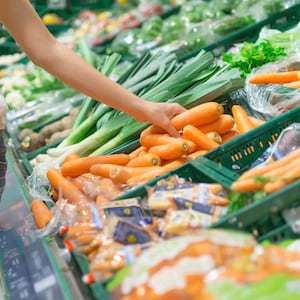Business
New Zealand’s Vegetable Industry Faces Decline: Urgent Changes Needed

The vegetable industry in New Zealand is experiencing a significant decline, with the area allocated for vegetable cultivation shrinking by over 25% in the past decade. This reduction raises concerns about the country’s ability to sustain its population’s nutritional needs. In response to this pressing issue, the Government of New Zealand is currently consulting on the implementation of national standards for vegetable production.
The reliance on domestic vegetable growers is critical for ensuring food security. As the industry contracts, many consumers may find themselves questioning the origin of their produce. For instance, when purchasing broccoli at a supermarket, shoppers often encounter a lack of information about where the vegetables were sourced. Unlike fruit, which typically carries a sticker indicating its origin, broccoli and other vegetables generally do not provide such transparency. Supermarkets are required to label their products accurately, stating “Product of New Zealand” or similar indications, yet often the specifics remain vague.
Impact of Shrinking Vegetable Production
The decline in vegetable growing areas has prompted calls for reforms to revitalize the sector. According to various industry experts, the reduction of local vegetable production could have far-reaching consequences for both food availability and agricultural diversity. As the demand for fresh produce remains stable, the decline in local supply could lead to increased imports, raising questions about sustainability and food quality.
To address these challenges, the government is seeking input from stakeholders within the agricultural sector. The consultation aims to develop standards that would not only enhance transparency in vegetable production but also encourage local growers to improve their practices. By establishing clear guidelines, the government hopes to bolster the resilience of the vegetable industry.
Future Prospects for New Zealand’s Vegetable Sector
The future of New Zealand’s vegetable industry hinges on the willingness of policymakers and farmers to adapt to changing conditions. Enhancements in technology and farming practices will likely play a crucial role in this transformation. Initiatives aimed at sustainability and efficiency could help counteract the decline in production areas.
Furthermore, there is a growing recognition that consumer awareness and preferences are shifting. More shoppers are interested in knowing the story behind their food, including where it comes from and how it is grown. This shift could serve as a catalyst for local growers to innovate and improve their marketing strategies.
As the consultation process unfolds, it is vital for all parties involved to remain engaged. The outcome could have lasting implications for New Zealand’s agricultural landscape, impacting not only the economy but also the health and well-being of its population. Only through concerted efforts can the country hope to reverse the trend of declining vegetable production and ensure a sustainable future for its food supply.
-

 World3 months ago
World3 months agoTest Your Knowledge: Take the Herald’s Afternoon Quiz Today
-

 Sports3 months ago
Sports3 months agoPM Faces Backlash from Fans During Netball Trophy Ceremony
-

 Lifestyle3 months ago
Lifestyle3 months agoDunedin Designers Win Top Award at Hokonui Fashion Event
-

 Sports3 months ago
Sports3 months agoLiam Lawson Launches New Era for Racing Bulls with Strong Start
-

 Lifestyle3 months ago
Lifestyle3 months agoDisney Fan Reveals Dress Code Tips for Park Visitors
-

 World4 months ago
World4 months agoCoalition Forms to Preserve Māori Wards in Hawke’s Bay
-

 Health3 months ago
Health3 months agoWalking Faster Offers Major Health Benefits for Older Adults
-

 Politics3 months ago
Politics3 months agoScots Rally with Humor and Music to Protest Trump’s Visit
-

 Top Stories4 months ago
Top Stories4 months agoUK and India Finalize Trade Deal to Boost Economic Ties
-

 Entertainment3 months ago
Entertainment3 months agoExperience the Excitement of ‘Chief of War’ in Oʻahu
-

 World4 months ago
World4 months agoHuntly Begins Water Pipe Flushing to Resolve Brown Water Issue
-

 Science4 months ago
Science4 months agoNew Interactive Map Reveals Wairarapa Valley’s Geological Secrets









